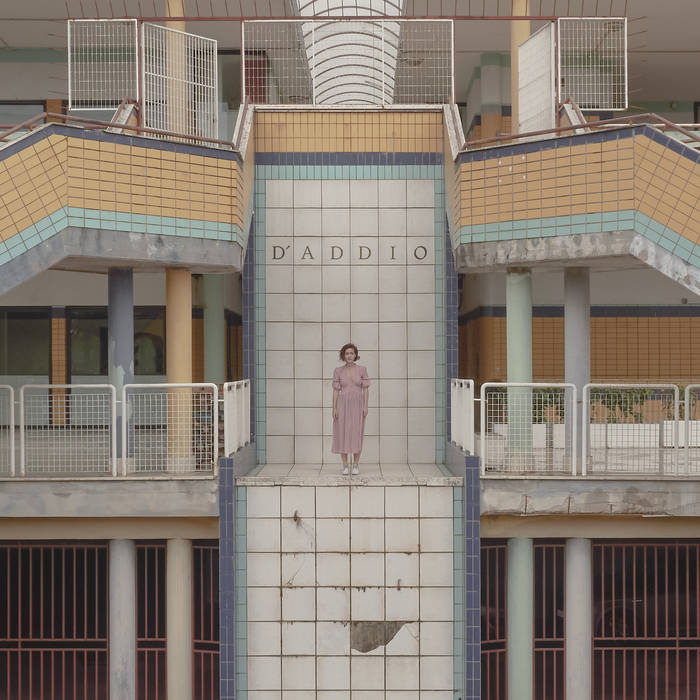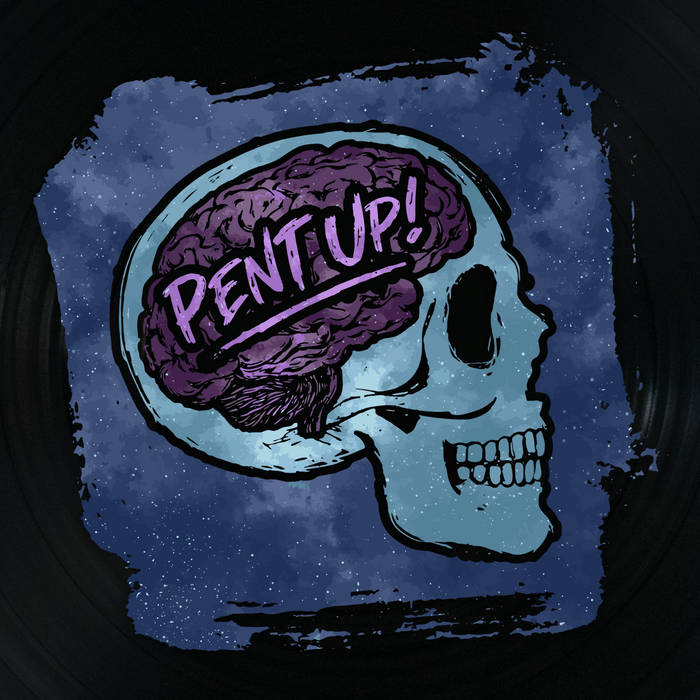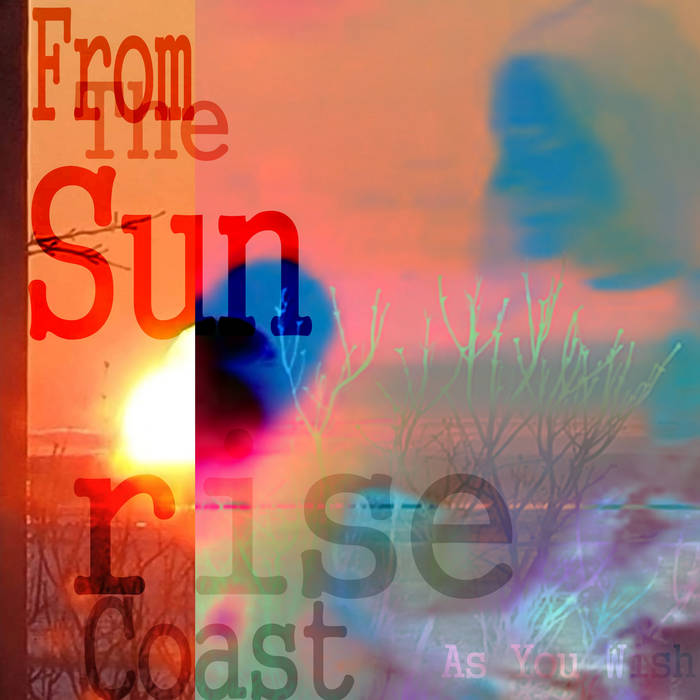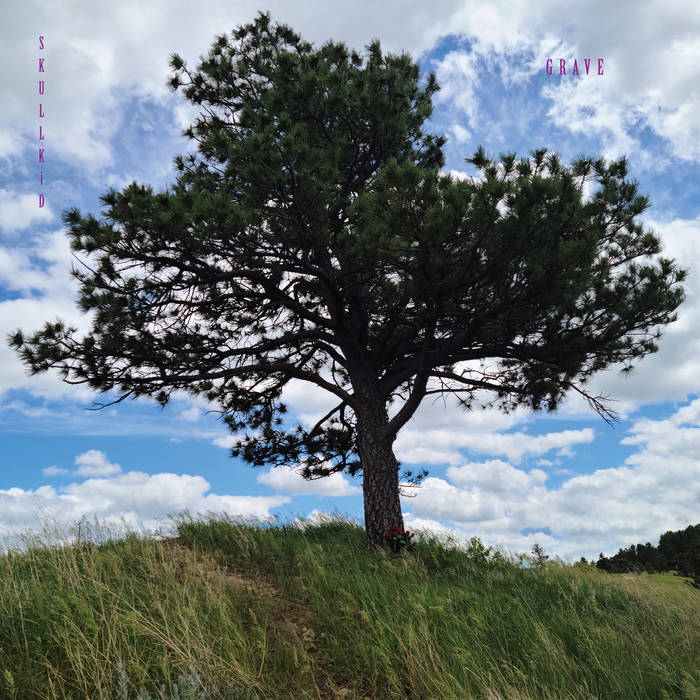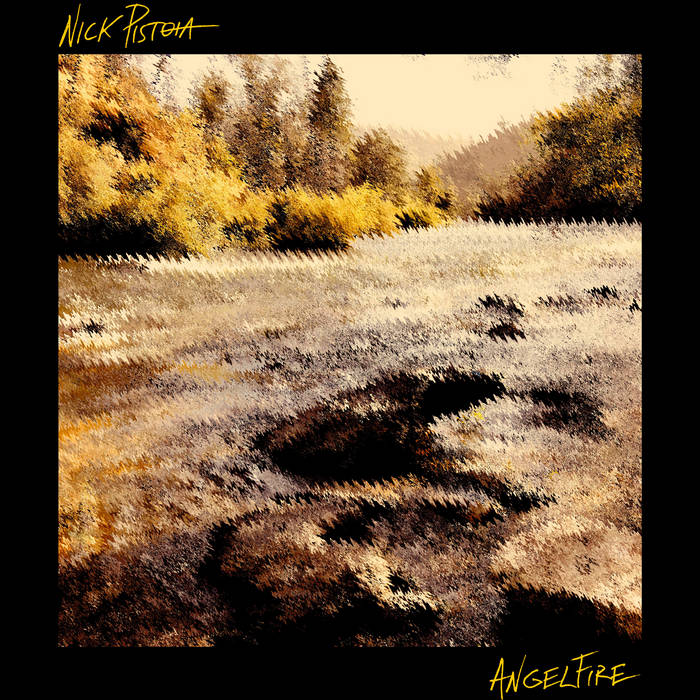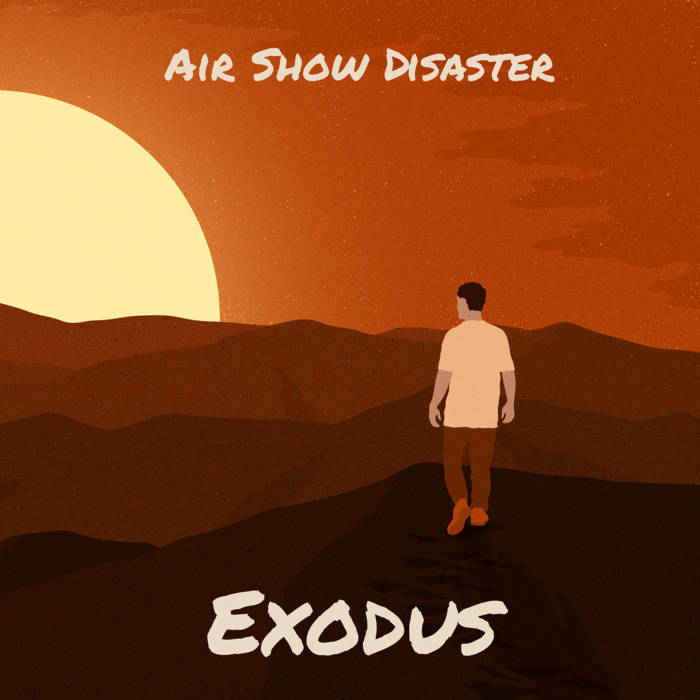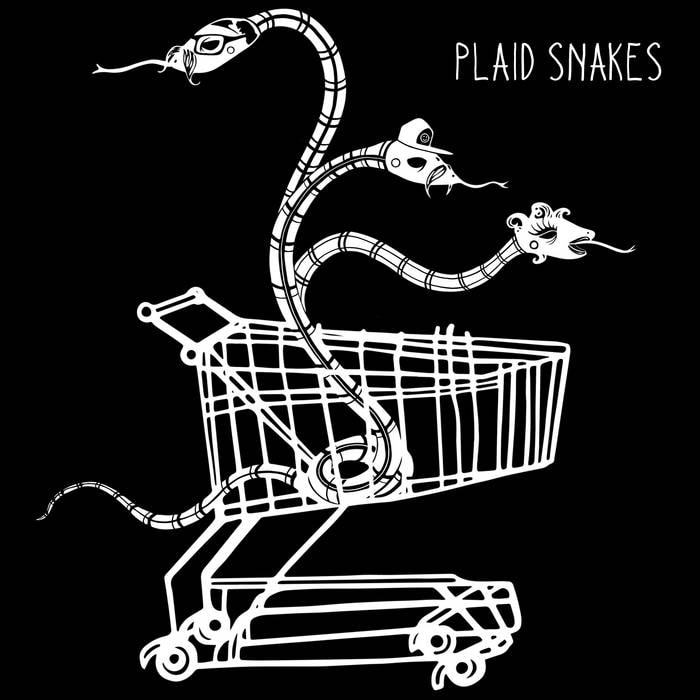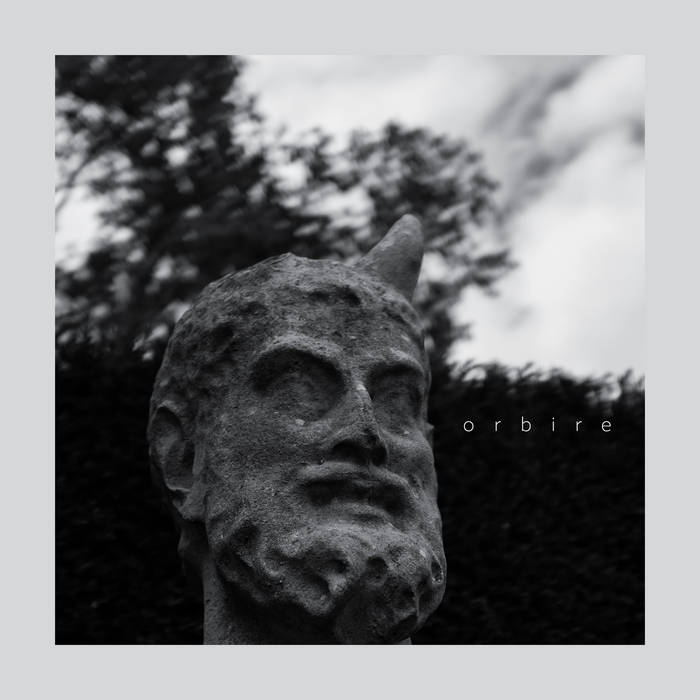|
The Artist Known As D’Addio is actually London’s Giulia Scarantino, a multi-instrumentalist producer, singer and songwriter. After two EP’s and one LP with her band ShirleySaid, her solo debut is titled D’Addio. Scarantino calls this collection “both a goodbye and a welcome to all the infinite possible new-selves that are yet to come.” Though the first single “A Separation” was released in 2019, the pandemic delayed the full album until now.
Scarantino did all production, recording and mixing in her room at home. Her press release explains that “though being constrained in a studio-bedroom might be perceived as a limitation, Giulia decides to embed this intimate atmosphere in the album, with its texture and feeling characterized by a ‘dirty’ sound: sirens, hums, background noises and lips’ proximity to the mic caressing the idea of distortion, which is a way to dip into our fears and dance with them.” More simply, Scarantino concludes: “These are just love songs.” Scarantino sings and plays guitar, bass, synth and piano, with help from three drummers: Marco Quarantotto, Toni Nordlund and Robert Segala. Joe Sharp adds trumpet and Marcho Machera provides additional arrangements and bass. Mastering was by Fabrizio De Carolis at Reference Studios in Rome. The recording overall is very good to excellent, though sometimes Scarantino goes much further than “caressing the idea” of distortion. “John’s Glasses” starts off like the soundtrack to a 1940’s Film Noir. Slow beats, saxophones, horns and interesting percussion. The acoustic piano heralds the first of Scarantino’s vocals, which mirror both the tonality and processing tricks of Kate Bush. Overall this track has a seductive, big band jazz feel with a modern flourish. The final minute strips away most of the instruments except horn and piano. “Bucolic” sounds like its title, pairing Scarantino’s more prominent vocals with a twangy, meandering guitar line, which slowly morphs into an almost classical arrangement. This is the second of five songs featuring drummer Marco Quarantotto, and he pulls out all manner of interesting beats and noises in the second half of the song. The basic beat is slow enough that he can create countless interesting patterns and rolls. “Victoria” has acoustic and eclectic guitars trading bluesy, sideways patterns. Scarantino’s voice is now even more clear and proves to be both intriguing and seductive. I’d almost call this track smooth jazz, but with a pronounced otherworldly vibe. “OJ” feels like D’Addio in modern hit format: drummer Quarantotto provides yet another unusual but catchy pattern, with the vocals and music featuring Scarantino at her most radio friendly, bordering on dream pop. “Deal” is somewhat similar, though the chorus is somewhat distorted and the simpler drum patterns sound programmed. That said, it’s still working for me! “Somewhere Nice” features a hushed, very heavily compressed lead vocal that clicks on and off as Scarantino sings. The melodies and arrangement again have a pleasing smooth jazz quality. “A Separation” introduces new drummer Toni Nordlund, and is another dreamy jazzy concoction with lots of distortion, fittingly for a song that may be sung by a ghost. Love the idea and the abrupt ending! Nordlund returns on drums for the album’s second single “Leave It” wherein Scarantino clears away the vocal cobwebs, singing clear, Japanese-sounding harmonies atop another distorted background of circular guitar melodies. “So Far So Close (By The Window)” closes out the collection with intimate acoustic guitar, naturalistic vocals and the sounds from Scarantino’s window as a background bed. I love the gentle feel of the music and singing with the perfectly-timed intrusion of wailing sirens in the first third. Playing this in the car the first time, I assumed the sounds were coming from outside. Home on headphones, the effect is very cool, especially when Scarantino lets the tape run for a full minute after the song. There’s a lot to enjoy here, and though some of the mixing choices took some time for me to get used to, overall this is a stellar set of songs and performances from an obviously talented artist.
0 Comments
Pent Up! (exclamation point intended) isn’t afraid to explore punctuation, much in the way that their grammatical forebears – Panic! At The Disco and Al B. Sure! – hoped to channel similar degrees of excitement. Yet, unlike those artifacts of romantic power pop and middling R&B, this Seattle-based unit asserts their intent to “drink beer and play punk rock,” in that order.
Comprised of Brendan Honeycutt (guitar/vocals), Jay Barrett (bass/vocals) and Nate Oelrich (drums/backup noises), the band crafted their EP, Pretty Good in a so-called “Jamnasium” with nods toward ‘90s après-grunge darlings like Sponge and Collective Soul. Their sound is clumsily labeled as “post-pop indie emo punk rock.” Which is to say, the five tracks contained herein are a somewhat focused kitchen sink, even if the eventual press release might yearn for a snappier description. “Everytime,” the opening track, marks the first in a series of side-mouthed growlers. It flows in patterned homage to the “cock rock fusion” bravura so derided by Kurt Cobain. Yet on a plus note, this simply means that the guys keep the club vibe set to “energetic sweat” (aka Bud Light degrees Fahrenheit). Fists are pumped amidst the distillation of lyrics into their most humorously simplistic. Said differently, we’re not dodging any opium-fueled Jaberwocks with lines like “every time I hear your name / it gives me hives / just a new surprise." Nor is Pent Up! presumably gunning for a Pulitzer with such turns of phrase; at least not without a tube of hydrocortisone in tow. “Self Titled” traffics in agreeable jangle funk. And while Honeycutt sounds nothing like Andrew Wood, he effectively spans the glam-to-grunge bridge fashioned by Mother Love Bone. Light harmonies keep things interesting, especially when delving into the world of down-tuned sonic masculinity. Although “Summersong” and “Dream To Dare” follow similar playbooks – channeling either Buffalo Tom or Big Head Todd & The Monsters – the best track is saved for last. Namely, “Don’t” proffers fast moving verses with attention-getting changes in tempo. Honeycutt’s trademark vocal drag parades an added grit. Even if he’s crowing from a bunch of cocktail napkin lyrics, stuff like “the shelter in your eyes keeps me so strong” and “you’re the anchor I’ve been searching for so long” probably boasts decent odds of getting him laid. One might reasonably equate the quality of this album to its title. Pretty Good resides within the post-pejorative grunge landscape of easy metaphor and crunchy guitar. It’s sticky, like oatmeal, and the group’s brand of tight octave, utilitarian playing releases the gusto that was – wait for it – pent up(!) since first making acquaintances at a Pacific Northwest open-mic event. Alas, the boy band revolution turned this genre on its ear and spawned decades of hyper-tweaked pop. Thankfully, these guys don’t seem destined for choreographed dance, frosted tips or three button suits which is, I guess, a testament to their fervency. When someone punctuates with an exclamation point, they’re damn near looking to bring the fire. And this fuzz-and-feedback conflagration tends to burn, well, pretty good indeed.
Portland, OR’s Izy Kactus encompasses four songwriters who came together to produce a sound that is really out of this world. Covering a genre-bending sound, the band is influenced from everything across the board from spaghetti western, alt-rock, soul, Latin, folk music and much more on their self-titled debut Izy Kactus. From the very start, the band uses huge storylines to draw listeners in. A journey that includes a wanderer man, searching for a home (“A Dusty Road”) to finding a familiar place to settle down in (“Easier”) and finally to a nightmare that terrorizes a girl (“Dead Run”), there’s definitely a ton to appreciate here!
Izy Kactus opens up with “A Dusty Road,” which starts off to some somber acoustic guitars. Next, the synths and organ come in. Once the gritty vocals arrived, I was getting some spaghetti western vibes right away. The music was jaunty and moving. I could picture tumbleweeds and a dusty road on this track that reminded me of a Tarantino film. The guitar solo was stellar here. Some guitars and a voiceover light up the sounds toward the start of “Easier.” With a meandering melody, this song definitely felt like a slow burn to my ears. Sounding very soft, I was reminded of a lullaby. I thought this track was very atmospheric. The soothing sounds felt welcoming to me. To the clang of guitars, the band changes things up for a more exciting sound on “Dead Run.” As the vocals are shouted out with great gusto, I was getting some Latin vibes here. This seemed to be a great way for the band to close as they send us off with this hard-hitting finale. The band experiments with a wide range of genres. Just on this EP, the band goes from spaghetti western to indie rock and beyond. My only critique is that this record was way too short. I really wished there was more as I enjoyed the three tracks that were on the album. With that being said, I look forward to seeing a full-length album from the band soon!
Dave Muir is a musical artist from Ottawa, currently based in Atlantic Canada. Dave has been crafting his unique style and sound since the early ‘80s performing in various blues, rock, roots and acoustic groups. Muir recently released From the Sunrise Coast.
From the Sunrise Coast is a very well produced album with an array of instrumentation and well- crafted songs. There’s a mix of genres and the more obvious references are Americana, folk and rock. The album gets going with “Runaway Ghost” and is just a wonderful song. Great guitar work, puts you in a good mood and I thought Muir had a great delivery on the vocals. The vocal melodies are memorable and it's a smooth and fun song from beginning to end. It felt like a good way to start the album but also a live set. I loved “Highway” which pours on warm nostalgia with a side of melancholy. The song has sun bursts of emotion which come in the form of reverb laced slide guitar. Muir absolutely nails the vocals. Killer song and if you like the band The War on Drugs this should immediately resonate. They break out an acoustic guitar and harmonica on “Joyville.” It sounds great stripped back but the song gets to a different level of emotion when the other instruments enter into the mix. The guitar work is exceptional, especially the lead around the four-and-a-half-minute mark. We get the first really intimate song with “In the Day.”.Airy synths glide with guitars here. The song is a bit of a slow burn and turns into a song that feels like it’s a reflection on gratitude. I absolutely loved “Sideman Serenade.” This sounds like a blues session outside a rustic shack. It’s very traditional sounding but does build into something a little more rock oriented. “Seen the Wind” is a piano led ballad with some of the brightest and joyous vibes on the album while “Christian” is a little more pensive and moody. Muir continues to establish his sound with “Arcadia” and “A Comedy of Air (Or One About The WInd).” Last up is “The Lay of the Land” which starts as a melancholy ballad that leads to one of the most epic moments on the album not too far from Pink Floyd. My only critique is some of the songs felt like they could have been trimmed down a bit. The first four songs are all over six minutes and I felt getting one of two of these closer to the three or four minute mark may have made it more impactful. Overall, this is unequivocally a great album from a great artist. The songwriting was not only consistently good but the flow of the album was dynamic. This album was an easy win for me. Take a listen.
SKULLKiD is located in Rapid City, South Dakota and recently released Grave. The band says they describe their sound as poppy punk with synth sounds and “we try to incorporate influences from pop punk, hardcore, synth pop, metalcore, indie rock and alternative genres into all of our music.” The band felt predominantly pop punk especially on some songs.
“Grave Meant for Two” is the opener and sounds like a B-side from Blink 182 and in fact the vocal melody sounds similar to one of their more popular songs. The song has all the criteria of pop punk. I suppose you could make an argument that the synth gives it a slightly different flavor but for the most part this is pop punk 101. The next song “1270” still has strong pop punk influence but this song does incorporate a little from hardcore and metal. It’s a catchy tune and I like how the vocals change from the verse to the chorus. On the verse he sounds wild and then on the chorus the vocal melody matches with the guitar line. The best part is before the two-minute mark where the song sounds like it’s about to boil over. “Paper Lanterns” gets more into hardcore punk like NOFX and Blood Brothers. I loved the fast paced and anxious feeling to this song. Props to the drummer for staying in the pocket. The song has this hum to it as well and then it goes into this metal/post-rock type of section and then once again the BPM increases and they rock out. This was the most original sounding song yet. “The Sadness Will Last Forever” is sort of this drone metal type song at first and transitions into a fast paced rock song. The punk aesthetics are the least recognizable on this song. It’s cool and definitely a different side to their sound. I like where the band's head is. They are trying out different styles, genres and colors. My critique is that they haven't figured out how to combine all things into a signature sound. It’s not quite yet there where each song has that X-factor which defines who they are and how people will recognize them. It does feel close to me though and I feel like that could happen on their next release. Overall, I thought this was a very solid release from a talented band. They sound good, are technically impressive and can write a tune. I predict good things to come but this EP provides a lot to appreciate. Take a listen.
Nick Pistoia is a musician who was previously in the bands Modern Hell and Samson. He recently went solo and released a five-song EP Angel Fire with the intention of forming a band when he moved back to Los Angeles. Pistoia mentions “Angel Fire is a collection of songs inspired by my favorite singer/songwriters: Paul Westerburg, Liz Phair, Bob Mould, George Harrison and Neil Young.”
The EP had to my ears a rock sound I associate with the ’90s. I was in high school back then and was listening to bands from Touch and Go Records. This release went down smoothly for me and I was able to appreciate the songs on first listen. The EP begins with “Pool” and it begins with a 4/4 beat, jangly guitars and a buoyant bass line. I’m inclined to think Pistoia put this as the opener because it had some very catchy vocal melodies. In fact the verse was just as infectious as the chorus. It’s just a great groove with a memorable vocal melody. The chorus amplifies the intensity when he sings “Liquid knows no bounds; surrounds an endless summer.” I thought the fade out was an interesting choice. The energy increases on the banger “Last Time.” It's a pretty straightforward tune with a good amount of distortion and hard hitting drums. The dynamics stay relatively stable for most of the song and the song goes by quickly at a little over two minutes. “Love from God” is the arguable highlight on the groove. This song is very dynamic with guitars that punctuate certain points in the riff. It’s also got some great vocal work, builds and some additional fuzz towards the end which gets the song into aesthetics of Smashing Pumpkins or My Bloody Valentine. “Blush” was a great one as well. The vocals were very emotive on this song. There’s a sense of longing and yearning to his voice I didn’t hear before. This song felt cathartic as well. Pistoia sings “Make a simple life / I need the simple life / I lead the simple life / I breed the simple life” as if it has to happen before there is peace. “How Loose” starts with a sort of melancholic vibe but when the drums come the emotion changed for me. It felt like the mood went from melancholy to melancholy with some gratitude. This hits hardest when he sings “Savor the moment / If it’s not already gone.” I thought this was a great EP. It’s raw but well produced and the songwriting and delivery is top notch. On that note I look forward to hearing what happens in LA when he finds a band to play with. Recommended.
Air Show Disaster aka Eric Sporer has been prolific. Divide and Conquer reviewed his self-titled album Air Show Disaster as well as Misdirection. His latest album entitled Exodus is more of a concept album. There are three long form songs which he defines as movements which is a term more correlated with classical music. Sporer says “The album was inspired by my own travels to the Negev desert years ago, which has always influenced my songwriting.” The imagery he sets up is “The long wanderer in the desert reflects widespread feelings of isolation due to two years of lockdowns.”
“Exodus I” starts off with a raw acoustic guitar and what sounds like wind blowing. Wind you might hear in a desert. The song does take off a little after the one-minute mark with drums and overdrive type distortion on the guitars. It’s slightly ominous and heavy and as other elements start to combine. There is a post-rock vibe emerging. Sporer mentions people have compared his music to King Gizzard and The Mars Volta but I was picking up more on bands like Godspeed You! Black Emperor and Do Make Say Think. The song gets intense until it fades out quickly and then fades in just as quickly. The second half of the song is this dissonant and haunting. Some of the guitars sound a bit out of tune but I think that was intentional. I was immersed. “Exodus II” starts off haunting as well and something about it feels Eastern as well. The song soon explodes into more of a psych rock affair. There are guitars which topple over like behemoths and there’s an almost meditative quality at points. Around the four-minute mark it feels very Zen for a couple of seconds before the heaviest moments come like an avalanche of sound that is alarming. There’s one last section that sort of ends the song close to where it began. “Exodus III” continues to flesh out this sound he established. This song has clear Eastern melodies and is also all over the place. There are a lot of transitions from ambient to blaring sounds. It might be the most ambitious song of the three. At the very least I thought it was the most experimental and the drone metal ending was awesome. I think this is the most realized and cohesive album I’ve heard from the artist. The songs flow together well and he revisits themes which make this a fulfilling listening experience. If you aren’t familiar with Air Show Disaster this is a solid place to start.
Every week we mention a couple of artists that are worth your time to check out that were not featured in our weekly reviews.
Artist Album Rating Mordigan Ritter Dissonant Fortune. 3.7 Stephen Kohler Daydream 3.7 Acid Vampire. Acid Vampire 3.8 Man Fall 3.6 Tulips Tulips 3.8
The Plaid Snakes is based out of Nanaimo, British Columbia, Canada. This three-piece indie rock band have been playing shows since 2018 and just finished recording their first full-length album Slippery Slopes. Plaid Snakes initially was a two-piece band, (guitar and bass) and then drums were added later in 2019. The three bandmates, Jason Felker (bass), Alexandra Hicks (guitar/vocals) and Matt Chesterfield (drums) have been good friends for over ten years and have played in many other bands prior to starting Plaid Snakes. The ten-track album was recorded at the Chamber Studio in Nanaimo by Rob the Viking (Swollen Members). Rob Hooper (Rob the Viking) recorded, mixed and mastered the whole album.
“Shoes” opens the album up with a heavy, thumping rock sound. Heavily distorted rhythm guitars, a loud and deep bass drum and a lead guitar doing its own thing, carves out the band’s unique style and sound. “Andy” has got a fantastic groove. A little bit psych rock, a little indie alternative. I guess, from what I can tell so far, if you’re a fan of The Pixies, Sonic Youth, Velvet Underground and the Breeders, I think you’re going to like these guys. Next is “Graveyard” and it’s got an even more unconventional arrangement than the previous two songs. I really loved the James Bond / Link Wray sound of the lead guitar here. “Give it to You” is a short song, in fact it’s the shortest on the album. It features a fun, twisting ‘60s pop beat, with plenty of indie rock attitude and a catchy guitar hook. “My Suzie” takes things at a slower pace opening up with the line “Suuuzie was my doll / Suzie was bald, like me / it took a long time for us to grow.” The band’s rhythm seems intentional as well as their change in tempo and instrument arrangement. I’d say this one is on some trippy level – like Jefferson Airplane trippy. The next song shares the band’s namesake, and it begins with a low guitar drone and deep, rumbling drum fills. The backup singing by Felker, and Chesterfield was great here, as well as Hicks’ guitar solo and the brief trade off on lead vocals. This one was a favorite! “Biology” was another favorite too – I just loved the band’s groove – low, mean, dark and brooding. It reminds me of a cross between dark ‘60s psych rock, the Cramps maybe, and a goth version of the Breeders. I thought “Wes is turning 30” had a lighter feel to it, with its indie pop guitar sound (a little less distortion), and the band’s brief interlude and lighthearted style between verses. This one really reminded me of the Pixies when Kim Deal was still in the band. “Trash Can” has got a little less distortion overall, (or maybe the vocals just sounded less distorted), and a very catchy lead/bass guitar riff. Plaid Snakes’ last tune is called “Hard to Explain” and it has a fun, danceable beat – like the rock ‘n roll and pop grooves of the ‘60s, but with a modern indie sound of the early 21st century. This last track also happens to be the band’s longest, but it still runs shy of the four-minute mark. And that’s one thing I noticed about all the songs on Slippery Slopes – their short duration. Plaid Snakes stays true to the history of early rock ’n roll songs – where you’d be hard pressed to find any song clocking in at three-and-a-half minutes, let alone four. In fact, many of the popular tunes back then were under three. Whether or not that was the band’s intention, that approach works well here. The band’s chemistry was fantastic, and the album overall was consistent and focused. If you like the indie rock of the ‘90s and ‘00s, (Pavement is another band that comes to mind) – but also flavors of old school rock, like from the ‘60s and early alternative, check out Plaid Snakes.
Become A Fan
Mindwrack is a solo artist from East London. He used his time during the pandemic wisely and wrote the six songs on his latest EP Orbire. At a drop of a hat, the songs can go from soft to aggressive just like that. With influences ranging from hip hop, electronic music and some scream-o metal, if your tastes are a little toward the dark spectrum, then this is definitely for you!
Orbire begins with “Collapse,” which starts off to some ambient guitars and synths. Next, Mindwrack’s smooth vocals come in alongside some ghostly whispering. The track changes from hard to soft in a matter of seconds. The artist infused a good smattering of hard rock, hip hop and indie rock here. I was definitely reminded of artists like Linkin' Park and Rage Against the Machine. More great energy comes from “Selfsame.” Right from the get-go, the artist comes in with his whirlwind rap-style. The synths and beats in the background heighten the effects of the heavy sounds. Intermingled in this heavy vibe is a soft piano piece along with the vocals that are like the eye to the storm. The title track “Orbire” starts off with some sparse guitar riffs. The sound that comes across is slow grooving and meandering. Next, the music grooves become more adamant with a full band backing. Mindwrack spits out his verses with consistent verve. His execution is like a cyclone as he keeps listeners on their toes. On “3:56”, the song starts off with some stripped guitars. Mindwrack’s vocals come through the stillness of the track, sounding soothing and atmospheric. Gradually, some synths enter as the sounds make way for some shimmering music. On “Dawn I,” sparser instrumentals highlight the sound at the beginning of the song. Slowly Mindwrack’s vocals come in. His vocals are emotionally powerful and take flight over the expanse of the song. The sounds were soft and sounded just like a lullaby. Warbling synths come into “Sleep Inevitable II” as well as some simple guitar riffs. Next, the artist spins his evocative rap style, spitting out rhymes with a happening energy. This seemed to be a moving way for the artist to close the album. Mindwrack at first draws listeners in with his mesmerizing vocals, then changes things up as his metal-like screams and rap-style settles in. Right from the start, I thought he sounded a lot like bands like Linkin' Park or Rage Against the Machine. During the ‘90s and ‘00s, there were a lot of bands coming out that sounded like this and I think what Mindwrack manages to do here is create something that furthers the genres as well as carrying the torch for other like-minded bands. I look forward to hearing more from him soon! |
Critique/insightWe are dedicated to informing the public about the different types of independent music that is available for your listening pleasure as well as giving the artist a professional critique from a seasoned music geek. We critique a wide variety of niche genres like experimental, IDM, electronic, ambient, shoegaze and much more.
Are you one of our faithful visitors who enjoys our website? Like us on Facebook
Archives
July 2024
|

